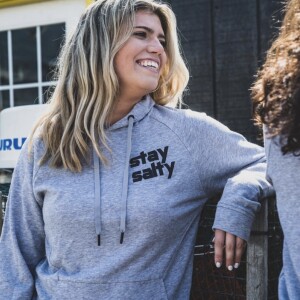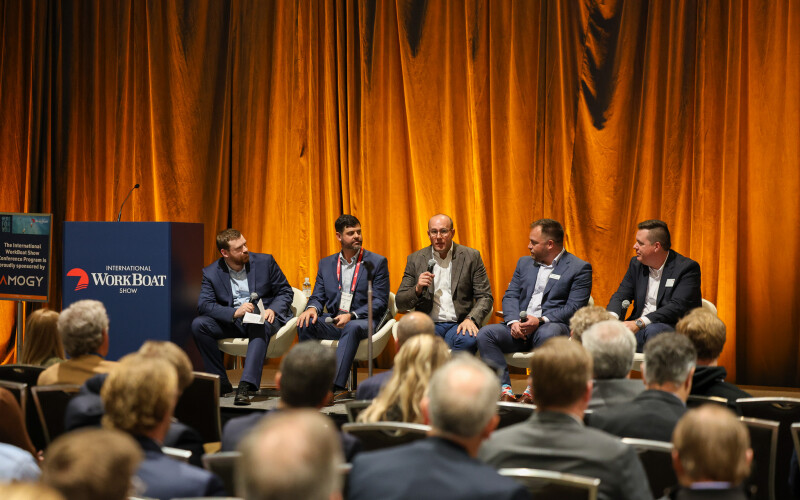At the International WorkBoat Show each year, the latest technology is always highlighted. That was the case again this year with the show's first conference session on the design and construction of the first U.S. electric tug.
Crowley Maritime Corp.’s innovative 82' eWolf tugboat, the first zero-emissions tug in the U.S., is designed to operate without using any fossil fuels, a significant step in the race to reduce carbon emissions. While conventional tugs use more than 30,000 gals. of diesel fuel annually, this fully electric tug will operate on 6-MWh of battery power with zero emissions. It is scheduled to be operational by the beginning of 2024. The eTug was built by Master Boat Builders, Coden, Ala., and utilized the design and on-site construction management by Crowley Engineering Services.
Joined by community stakeholders and key partners, the Port of San Diego and Crowley broke ground in August 2023 for a shoreside charging station.
San Diego was sought as an ideal port for zero emissions vessel short-term operations and can provide a centrally located dock for charging. Corvus Energy created the two containerized energy storage systems. As a microgrid charging facility, vessels can recharge quickly at a charge rate of 1-MW while reducing peak loads on the community energy grids by operating during off-peak hours. The station also includes a solar power array that supports renewable energy use and is further designed to support other electric equipment and vehicle operations as needed.
Coulston Van Gundy, vice president of Crowley Engineering, said that the station was primarily put in place to support the eWolf, and the charger plug compatibility for the vessel will align with other electric equipment such as electric vehicles.
The vessel will eliminate 178 tons of nitrogen oxide, 2.5 tons of diesel particulate matter, and 3,100 metric tons of carbon dioxide over the first 10 years of use. Keegan Plaskon, director of business development at the American Bureau of Shipping (ABS), explained, “the eWolf complies with U.S. shipping industry standards and will be the first Jones Act-compliant all-electric tug.”
Crowley says the zero-emissions capabilities and autonomous technology will benefit the environment and increase the safety of mariners on board. However, there are drawbacks. The battery-driven electric motors cannot be retrofitted and placed in existing tugs, while alternative fuel engines can be retrofitted. Garret Rice, president of Master Boat Builders Inc., shared, “It’s costly to retrofit an already existing vessel fully. Federal and state grants can help fund new fully electric vessels.”
Edward Schwarz of ABB added, “It’s important to work with people and companies who understand the end goal. You have come to terms with the time a project like this will take upfront, from regulations to layout complications.”
The progress of innovations within the maritime industry can be alarming to some, but implementing electricity is in all industries' foresight.
Schwarz further shared short-term goals associated with the autonomous and remote-controlled functionality during vessel transits and implementing remote operations centers. “ABB plans to implement post-delivery while being in accordance with requirements for autonomous and remote-control functions and cyber safety. The Coast Guard plans to be engaged for technical and operation training and certification of operators.”
Questions of autonomy in the maritime industry arose, and the concerns about mariners losing their jobs were touched upon. According to the panelists, continuous supervision and the need for new mariners in this industry are prevalent.
“We attract people to the marine industry with these new developments," said Van Gundy. "We must provide innovative, sustainable vessels for this industry to stay ahead for our customers and the next generation.”




